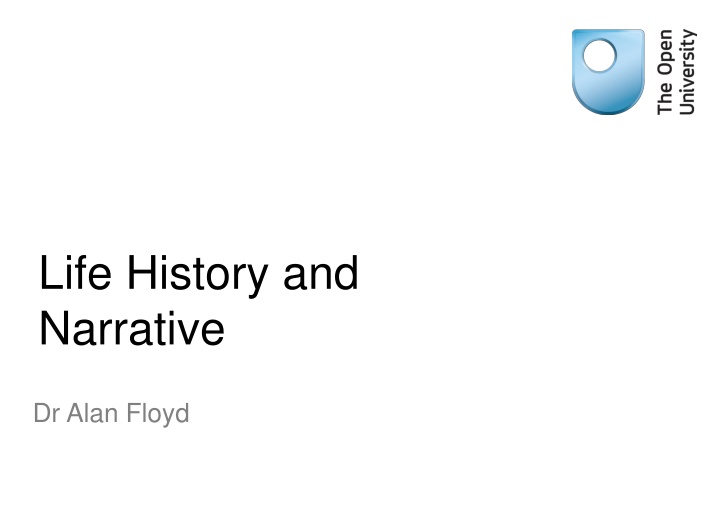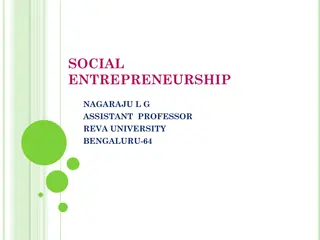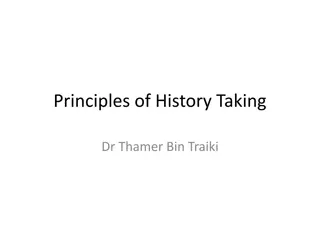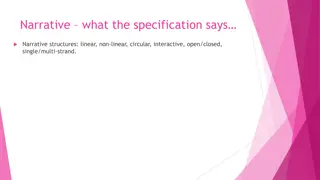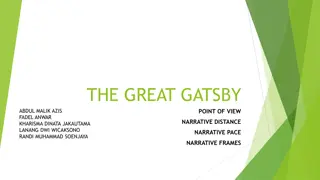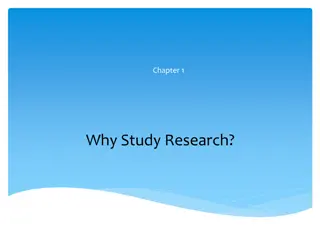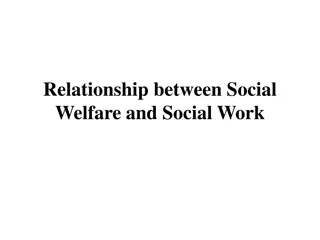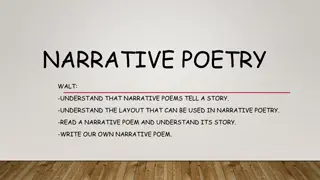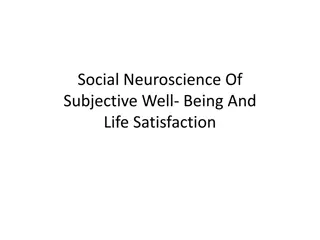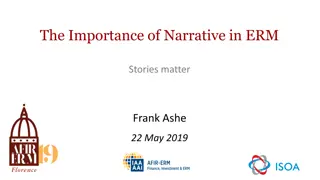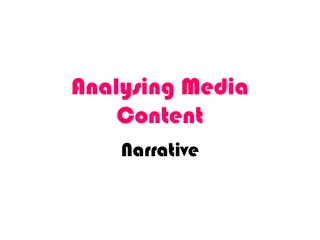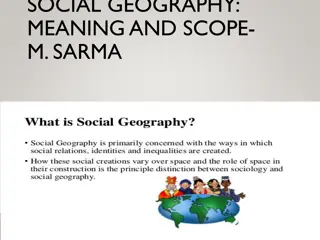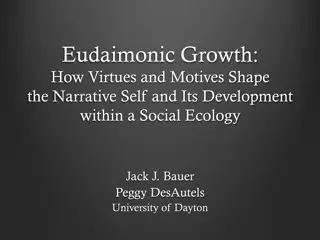Life History and Narrative in Social Research
Narrative inquiry in social research explores personal perspectives and subjective experiences through storytelling methods like autobiography, oral history, and life history narration. This approach delves into the interconnectedness of biography, history, and context to understand complex social situations in a holistic manner, emphasizing the significance of individual narratives in interpreting events and phenomena.
Download Presentation

Please find below an Image/Link to download the presentation.
The content on the website is provided AS IS for your information and personal use only. It may not be sold, licensed, or shared on other websites without obtaining consent from the author.If you encounter any issues during the download, it is possible that the publisher has removed the file from their server.
You are allowed to download the files provided on this website for personal or commercial use, subject to the condition that they are used lawfully. All files are the property of their respective owners.
The content on the website is provided AS IS for your information and personal use only. It may not be sold, licensed, or shared on other websites without obtaining consent from the author.
E N D
Presentation Transcript
Life History and Narrative Dr Alan Floyd
Why Life History/Narrative Useful for understanding complex social situations Biography, history and context inextricably linked Research Question? 2
What is it? Contemporary narrative inquiry can be characterised as an amalgam of interdisciplinary analytic lenses, diverse disciplinary approaches, and both traditional and innovative methods all revolving around an interest in biographical particulars as narrated by the ones who live them. (Chase 2005, p.651) 3
What is it? Developing field (Clandinin, Pushor, & Orr, 2007) Concerned with personal perspectives of people s experiences of an event or series of events (Newby, 2010) Particularly suited to studies whose research questions are based around exploring perceived, subjective experiences of individuals or groups of individuals. 4
Narrative Research Practices autobiography - when the narrative is constructed by the researcher oral history - when individuals or groups of individuals reflect on events life history - when a person s entire life is narrated (Cresswell, 2007). 5
Collecting data Participants Numbers The interview (recorded) Every situation unique: Example 1 Example 2 6
The interview Use open-ended questions Get the respondent to tell stories of their experiences Hollway and Jefferson (2000) follow up themes using the respondent s ordering and phrasing Chase (1995) 7
The interview Schedule? I would like to ask you to begin with your life history Flick (2006, p. 173) Over to you... 8
Analysis Josselson and Lieblich (1993, xii): Knowing must also include the conceptual. Story cannot stand alone but must be linked to some theoretical concepts or previous knowledge. 9
Analysis what is central is the relationship between the individual and wider structures narrative inquiry therefore goes beyond the telling of stories... (Bathmaker & Harnett, 2010, p.4) 10
Analysis Two main approaches: The first is to attempt to reduce the data by using coding and thematic analysis techniques The second is to attempt to analyse the data as a whole, in narrative form. Can they be reconciled? 11
Analysis Notes Transcription who? Time volume Iterative Respondent validation? 12
Analysis Coding/thematic analysis Profiles (Seidman, 2006) Validity/Reliability? Improving ? Triangulation or supplementation? 13
Writing up Presentation Links to theory Connecting to broader social and cultural narratives 14
Writing up Making bias explicit? Short biography Highlight the epistemological and ontological positions that have underpinned your work early on in your report? 15
And finally Being in the midst (Clandinin and Connelly, 2000, p.63) ...being in life history work can alter lives. (Goodson and Sikes, 2001, p. 109) 16
Questions? www.open.ac.uk
